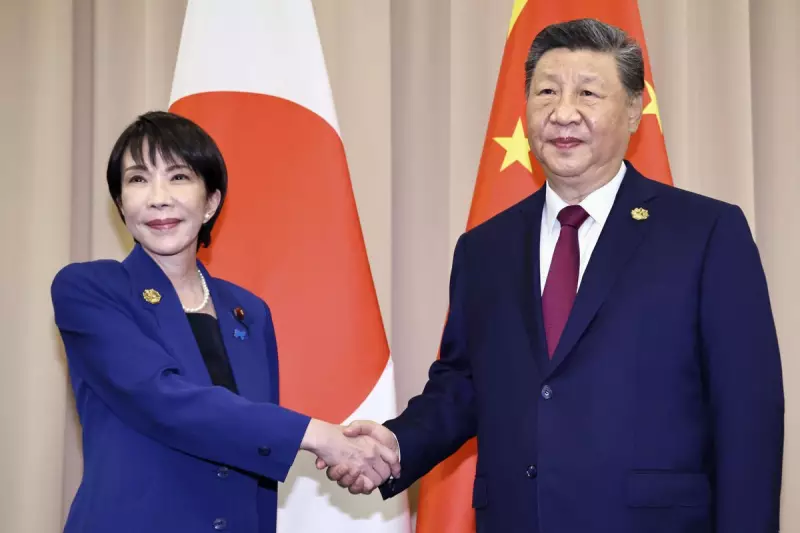
A significant diplomatic rift is developing between Japan and China, triggered by comments from Japan's new Prime Minister Sanae Takaichi suggesting that Japanese military force could be used in response to Chinese action against Taiwan.
A New Conservative Voice Stirs Tensions
Less than a month into her term, the conservative Prime Minister Sanae Takaichi has dramatically escalated regional tensions. Speaking to a parliamentary committee on 7 November, she stated that a Chinese naval blockade or other military action against Taiwan could be considered grounds for a Japanese military response.
These remarks represent a significant shift in Japan's public stance. While previous leaders expressed concern about China's threat to Taiwan, they carefully avoided specifying how Japan would respond. Takaichi, a longtime supporter of Taiwan who views China as a growing threat, has gone further than any of her predecessors.
Although she later refused to retract her comments, Takaichi told the same committee three days later that she would avoid discussing specific scenarios in the future. She has also ordered an acceleration of plans to boost Japan's military spending.
China's Stern Warnings and Retaliatory Measures
The reaction from Beijing was swift and severe. China's foreign and defence ministries, its Taiwan Affairs Office, and state media all condemned the remarks. China's Foreign Ministry called in Japan's ambassador on Thursday to issue a stern warning against any interference in Taiwan, which it considers a domestic issue and a "red line" that must not be crossed.
The situation intensified when China's consul general in Osaka made a now-deleted social media post, using aggressive language that Japan's Foreign Minister Toshimitsu Motegi labelled as "extremely inappropriate". Japan's Foreign Ministry subsequently summoned China's ambassador in Tokyo to complain.
Beijing then began upping the ante with economic and diplomatic measures. On Friday night, China issued a notification advising against travel to Japan, a significant move given that approximately 7.5 million Chinese tourists visited Japan in the first nine months of this year alone, constituting about one-fourth of all visitors.
China's Education Ministry followed with a warning to students about crimes against Chinese nationals in Japan, and China's coast guard announced it was patrolling waters around a group of uninhabited islands claimed by both nations.
The Complex Backdrop and Future Implications
Japan's position is complicated by its post-World War II constitution, which restricts the use of force to defending its own territory. However, a 2015 law pushed through by former Prime Minister Shinzo Abe—Takaichi's political mentor—allows Japan to come to the aid of an ally, most likely the US, in a conflict deemed an existential threat.
Takaichi's comments explicitly suggested that a Chinese move against Taiwan could constitute such a threat. Analysts note that Tokyo is reluctant to withdraw the remark, as doing so could limit its options in a future Taiwan crisis and damage the new prime minister's high public support ratings.
Japanese officials are now attempting to calm the situation. Foreign Minister Motegi stated he would ask China for "an appropriate response" to prevent major damage to bilateral relations. The US-Japan alliance looms large in the background, with the US being the main supplier of weapons to Taiwan.





